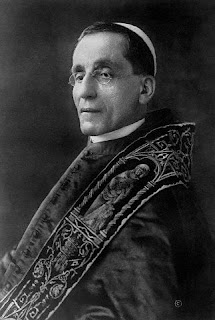Thursday, January 28
Of Dumb Oxes and Cuban Apostles
Today is also the birthday of a secular saint of sorts among Cubans and Cuban-Americans of a certain age, José Julián Martí Pérez, the ill-fated poet-warrior who is sometimes considered the George Washington of that equally poetic and ill-starred island. I do not know if it was a frustration to my Cuban grandfather (supreme court justice, former revolutionary, former minister of labor, amateur cartoonist and absentminded collector of oddities) that I was born the day after Martí's birthday and not actually on it, though given how he doted on me in his own lovably off-kilter way I doubt it could have been that major of one. (I was, of course, just running on Cuban Standard Time--though as my grandparents were the only people on the island who actually ever got places ahead of time, presumably I did not inherit that particular gene of theirs).
Weirdly enough, Cesar Romero--who played the Joker in the old Batman show in the sixties--appears, based on conjectural but not improbable evidence, to be the Cuban liberator's grandson. There is a rather dramatic statue of the revolutionary at the head of Avenue of the Americas (known to everyone else besides me as 6th Avenue) in Manhattan, showing him being shot off his horse in battle on May 19, 1895 at Dos Ríos. I have found it in the past either very grand and moving or rather embarassing: is this a memorial to revolutionary martyrdom or of sheer pigheadedness?
The circumstances of Martí's death are either poetical and romantic, or rather tragically farcical, depending on how one looks at it: only shortly after his return to Cuba from exile, he rode off accompanied by a single Cuban trooper, into certain death against a Spanish position. While certainly brave, it lacked, sadly, the commonsense a battle-hardened veteran such as fellow rebel Máximo Gómez would have possessed. Nonetheless, as a literary and political figure, Martí's influence is unrivaled. Indeed, he earned the title of the "Apostle of Cuban Liberty" among his people due to his tireless peregrinations in Cuba, Spain and the United States; rather than a Washington, perhaps the analogy of a secular Paul of Tarsus--always scribbling, always moving--is more apt. Among Cubans of my late grandfather's generation, especially those who tended the flame of liberty in exile even when it had been reduced to a zippo lighter by official neglect, simply speaking of El Apóstol was enough to designate Martí, much like "the Philosopher" in Thomas can only mean one man--and much like "Thomas," among theologians, can only mean that one Thomas.
Martí and the Cuban independence movement can have a wrong-end-of-the-telescope comic-opera feel to it when looked at from afar. Latin American history has been ruined by too many Woody Allen comedies and yellow journalism. We also laugh sometimes because much of it is too horrible to be looked at eye-to-eye without: Paraguay's history, for instance, is marked by a succession of dictators whose oddities would be hilarious (inviting the Pope to be an altar-boy for his puppet archbishop, canonizing himself as a saint--and these are two different dictators) if one overlooked the spectacularly horrible, even casually cruel reigns of terror they unleashed. Fidel seems like a Caribbean Benzino Napoloni or Rufus T. Firefly--beard, funny hat, cigar, enormous ego, long speeches--until you remember he has the death of an entire island to his credit. I'm not saying don't laugh--it is a sad tyranny that can crush that one release every free man still has, and one of the great scourges of contemporary society is its long-faced obsession with "awareness" (don't do something, just think dull thoughts about it) but at least think when you laugh.
Perhaps, in my case, my myopia in this regard also comes from standing too close by, rather than too far off. I am easily reminded of the gentle eccentricities of the aging Cuban exile community that I saw growing up. (My own low-level love of triumphalist Grandmother Spain complicates matters further. I was rooting for the Armada when I watched Elizabeth: The Golden Age.) As I said to a friend recently who suggested I watch some movie about the Amish, "I'm Cuban, I'm Southern, and I hang out with Catholic nerds--I have enough obscure subcultures to deal with." My own grandfather managed to temper the rhetorical flights of fancy of a Martí with the hard-headedness of a Gómez, something not always shared by his compatriots. Sometimes I know how he feels. Yet with Martí and with my own grandfather and his colleages, they were in deadly earnest. This was no game. The Spanish commandant "Butcher" Weyler must have gotten his name somehow. I have been told the first true concentration camps were started under his watch, not during the Boer War as many think. (Though, of course, Andersonville predates them all, shamefully). People bled and died from words they spoke or wrote, and they were brave men, even if occasionally time has perhaps bleached the bloodstains from their uniforms.












